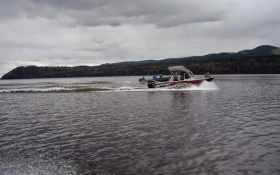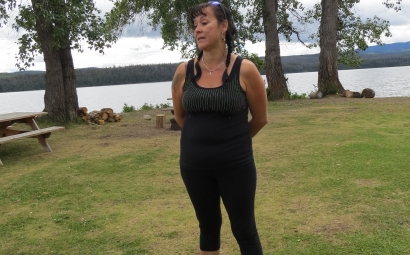Specific Claims
What is a Specific Claim?
Specific Claims are separate from the larger treaty process. The treaty process deals with settling a large number of issues for a First Nation with both the BC and Canadian government. Specific Claims are only about being compensated for instances where the Canadian government did not fulfill its fiduciary obligations to a First Nations. This means that the federal government did not act in the best interest of a First Nation around a question about a reserve or money management.
Most specific claims are about the sale or misuse of reserve lands. If the government gave a reserve to the wrong nation; if they let other groups take away or use a portion of a reserve without making sure that the First Nation received enough compensation either in land or money; if a reserve was supposed to be given to a First Nation but was never surveyed and handed over; if the government shrunk a reserve; or if an area was important enough to a First Nation that it should have been made a reserve but never was then there may be grounds for a specific claim.
The process for resolving a specific claim is a really long one. First a proposal has to be sent in to the government to apply for funding to research a place where the First Nation thinks there may be a specific claim. If money is granted the research has to be completed. Because most of the evidence for specific claims is found in documents stored in archives, specialized researchers have to be hired to complete this work. Once the research is complete, lawyers have to write a legal opinion about whether or not there is enough evidence that Canada breached its fiduciary duty to continue to pursue the claim. If they find that there is enough evidence, the research reports and legal opinion are all submitted to see if Canada will accept it for negotiation. After that there is a three year window involved. Canada has to respond to the claim within three years, if they accept it for negotiation they have three years to resolve the claim. If they don’t meet those three year windows, if they refuse to negotiate the claim, narrow the frame of negotiations, or do not recognize it as a claim then the claim can be submitted to the Specific Claims Tribunal, which is an independent body that has the power to make binding decision about these claims. Whatever the tribunal decides everyone has to listen to, including the government.
This is a very long process and all of the steps take quite a bit of time. By the time all the research is done and the claim is filed and the funding etc. has all been sorted out it can take several years just to submit a completed claim to the Canada. After that there can by a three year wait and then another long wait because the tribunal is already having trouble keeping up to the number of claims that they are receiving.
Topley Landing Claim
This claim deals with the area on the south side of the Fulton River where the village of Topley Landing is currently located.
Portage Claim
Research is underway for a possible claim around the reserve located on the Babine Lake end of the portage between Babine and Stuart Lakes.
Babine Fence Claim
Research is being done about the area around the Babine Fence in preparation for a possible Specific Claim.
Taltapin Lake Claim
This claim centers on the failure of the government to create a reserve to protect a Babine village at Taltapin Lake.
Michelle Bay Claim (IR 25)
This claim centers on the use of the reserve for a log yard without getting surrender documents from the Babine.
Illegal Logging
This claim centres around the compensation paid for two logging roads built through IR 16 and IR 5.
Donald’s Landing Claim
This deals with the failure of the government to reserve lands at Donald's Landing due to European settlers pre-empting land in the area.





